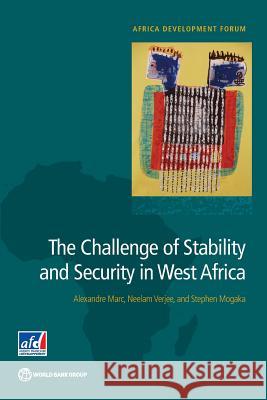The Challenge of Stability and Security in West Africa » książka
The Challenge of Stability and Security in West Africa
ISBN-13: 9781464804649 / Angielski / Miękka / 2015 / 215 str.
Since independence, the West African sub-region has been an arena for a number of large-scale conflicts and civil wars, as well as simmering and low-intensity uprisings. Contrary to perceptions, West Africa in its post-independence history has experienced fewer conflict events and fatalities from conflict than the other sub-regions on the continent. The turn of the millennium has witnessed the recession of large-scale and conventional conflict, and it has ushered in new and emerging threats. The specters of religious extremism, maritime piracy, and narcotics trafficking threaten to undermine some of the progress achieved in recent years. The Challenge of Stability and Security in West Africa critically examines the key drivers of conflict and violence, and the way in which they impact the countries of the sub-region. In addition to emerging threats, these drivers include the challenges of youth inclusion, migration, sub-regional imbalances, and extractives, as well as challenges related to the fragility of political institutions and managing the competition for power, reform of the security sector, and weakness of institutions related to land management. The book explores how the sub-region, under the auspices of the regional organization ECOWAS, has become a pioneer on the continent in terms of addressing regional challenges. The Challenge of Stability and Security in West Africa also identifies key lessons in the dynamics of resilience in the face of political violence and civil war drawn from Cote d'Ivoire, Liberia, and Sierra Leone, that can be useful for countries around the world in similar situations. It incorporates knowledge and findings from leading experts and provides insights from academics and development practitioners. Finally, the book identifies possible policy and programmatic responses and directions for policy dialogue at the national and international levels.











